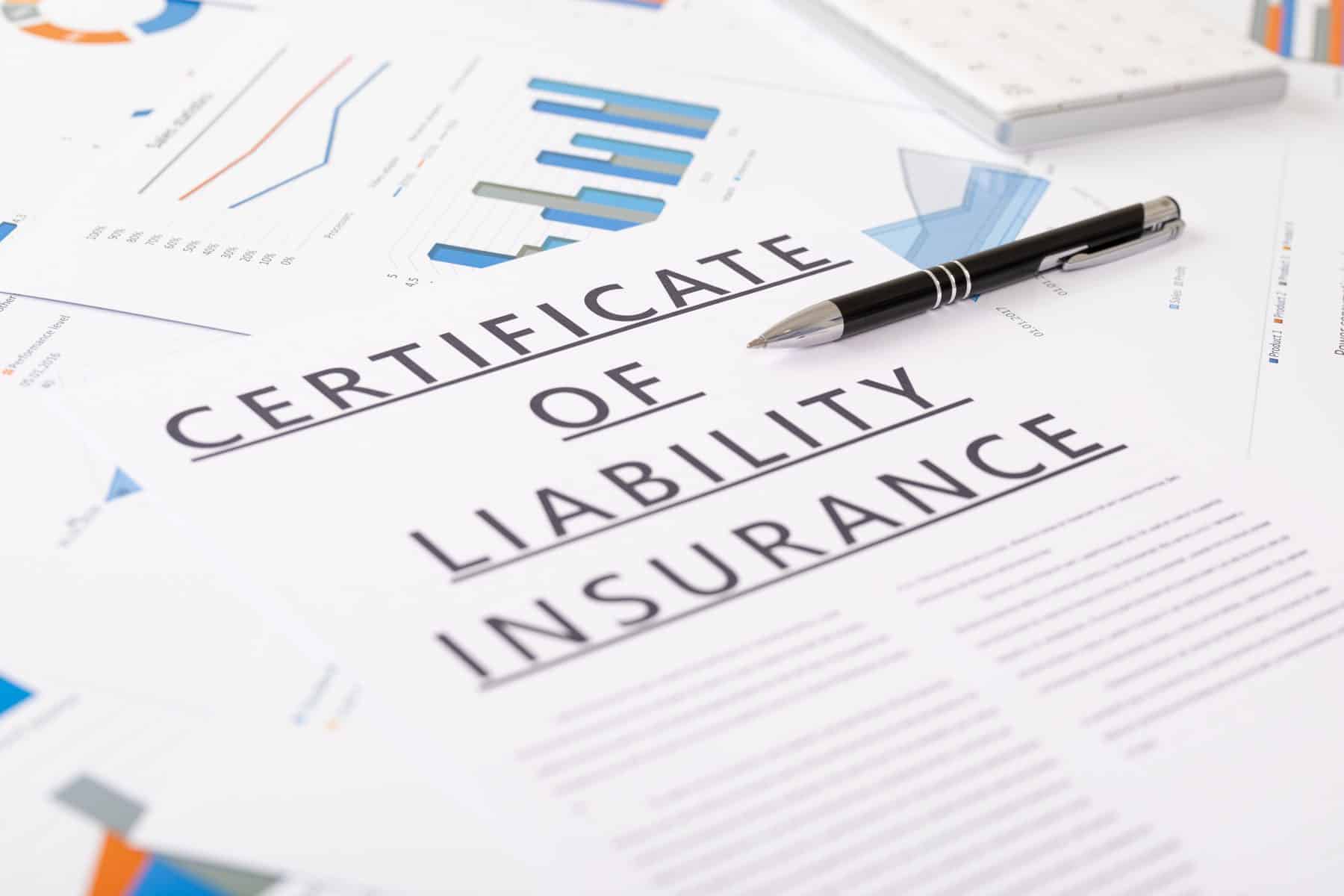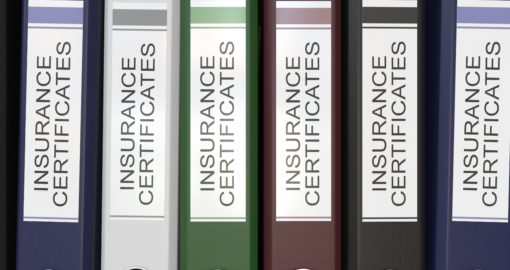Call Us Today (877) 943-0100
11 Ways to Improve Service Network COI Management
COI Management | July 27, 2020
Protecting your organization when working with third-party contractors can be complicated. There are many pieces that must be managed to protect both your business and the business of your contractor. Reliable COI management is a must.
Many things can go wrong when ensuring that you have properly mitigated your risk through the management of certificates of insurance (COIs) and your compliance program. Confirming proper coverage and requirements, missing or incorrect COIs, proper communication and enforcement can be a challenge.
The following suggestions cover the most common problems found in the collection, evaluation, notification, management, and monitoring of COIs along with tips on how to avoid them. If you are looking to focus on the importance of proper insurance coverage and learn some best practices for mitigating risk in your contractor network, then you’re in the right place. Keep reading.
1. Establish Appropriate Insurance Coverage Requirements for your Network
Having a COI in hand does not necessarily mean you have properly protected yourself against risk, and one size does not fit all scenarios across your business.
Determine the relative risk that each contractor may pose, then develop insurance coverage guidelines aligned with the nature of the risk, the type of work they will be doing, and best practices for the industry. There may be different insurance coverage requirements and limits if a contractor is working on different programs for you. Being able to identify this and create standard requirements across programs is important. Also, you will want to find the right balance between keeping operations flowing and protection. As such, you will want to work with your operations team and what they hear from the network as well as consult with your insurance broker and/or risk manager to determine proper coverage. You will find that both will pull you in opposite directions, this is where you may need to strike a balance.
2. Ensure that the insurance requirements are in the contract or agreement
Once you have established appropriate insurance coverage, make sure that it is stated in your contractor agreement.
This will be your best line of protection if you find yourself in a lawsuit or claim. Ensure that you have done a review of older agreements with existing contractors and that you have an executed agreement with your current insurance requirements. An updated contract may be necessary at this point.
3. COI Management Can Ensure Coverage is in Place Before the Insured Begins Work
All too often vendors begin the job before you have received all the necessary paperwork. Not only does this demonstrate your lack of seriousness about the issue but it puts you at great risk and eliminates any leverage you may have over the contractor to get the required documents. If you are already giving them the work, why should they bother to provide the COI? It is important to establish a formal, consistent procedure for processing all COIs from the contractor before work begins.
4. Enforce the Rules for Insurance Coverage
A contractor who is currently in your network but not compliant with the insurance coverage needed should be addressed immediately. Any gap or lapse in coverage exposes your business to risk.
Review how often the contractor works for you and consider the type of work being completed to determine the level of risk you are exposed to. For high volume, high-risk work, you will want to ensure that the contractor consistently complies.
When you have a network of contractors, minimizing gaps in coverage means lines of communication must be established with your contractors, written expectations for appropriate coverage should be provided and procedures should be in place to make certain the contractor responds and complies with your requirements. Without enforcement of your policy and procedures, your program is not protecting you and puts the reputation, financial and operational wellbeing of the organization in the hands of your service network.
5. Make Someone Responsible for COI Management
Insurance coverage is not a “one and done” effort that you complete when engaging a contractor in your network and then never revisit. The COI process is something that needs to be actively managed.
Because this process can be menial or other priorities take the forefront, it often doesn’t get the attention it deserves. COI management includes the collection of the COI, confirmation that the contents, coverage, and policy information meet the contractual requirements, that the proof of insurance isn’t fraudulent, random rechecks to ensure coverage presented at onboarding remains correct and in place, and then reminders and recollection of the data at the end of each expiration period. Designate a specific individual, or individuals, to take possession of this important business process and hold them accountable for ensuring they meet standards.
6. Understand Certificates of Insurance and Declaration Pages
Does the team managing your compliance program know the difference between an auto combined single limit or split limits? How about cargo versus bailee coverage or garage liability versus garage keepers? Whether these coverages apply to your network or not, being able to understand applicable limits, policy types, endorsements, and other insurance information is critical to knowing whether or not the documentation provided fulfills your requirements and provides the coverage that you need to minimize risk.
Ensure that the team managing your program is trained to understand the nuances of insurance. Consider consulting with your company’s insurance broker, risk manager, or COI management company to gain knowledge on how and what to identify when processing proof of insurance such as certificates and policy declaration pages.
7. Understand Additional Insured Endorsements
As well as the standard policies and coverage limits, you may also need to understand additional insured endorsements, such as completed and ongoing operations or broad form vendor.
Both endorsements contain sections to be completed by an insurance underwriter (not the insurance broker or agent) to define who the additional insured is and under what circumstances. These endorsements alter the coverage provided in the insurance policy. Compliance with requirements can be at risk if the appropriate language and endorsements do not fulfill the policy requirements.
A review of the full insurance documents is required to ensure requirements are being met. This should be done by someone who has knowledge and experience in reviewing endorsements.
8. Obtain Renewal COIs Before Expiration
COIs expire at the end of the policy period and must be reissued for another period. A period is typically one year but may vary by coverage or provider.
Obtaining this documentation is part of the active management of the COI process, as noted earlier. It is also important to ensure coverage is in place to cover the entire time a contractor is working on a job. Helpful reminders and working with the contractor and Agent/Broker directly yield much success as the Agent/Broker has a vested interest in ensuring the proper policy is in place and the contractor is likely too busy with their operations to handle the nuances of the coverage they need.
Do you have a system in place to monitor this important information and act upon it? Is it working? These are important questions to ask yourself if you’re looking to improve your company’s COI management.
9. COI Management: Keep COIs Even After They Have Expired
When a policy expires and is replaced by an updated policy, retention of the previous policy is still very important. You may need a copy of that expired COI to prove the insurance was in place to protect you against the claim and help you recover damages. It also provides the necessary information on which carrier to contact. This further supports the concept that insurance is a management program and an ongoing process.
10. Measure Progress
Can you evaluate the success of your current COI management program? How successful are you at renewals and compliance metrics? If you cannot answer that or don’t know how you’re doing you probably aren’t doing the best job possible. Compliance rates will change over time, but a fulsome and efficient program will ensure that those changes result in increased compliance levels.
11. COI Management: If You Can’t Do It, Partner with Someone Who Will
There are a lot of moving parts to COI tracking, and you need a certain level of insurance knowledge and discipline to do it properly. Be honest about your capabilities, the time and expertise you have available to dedicate, and whether this is something you want your organization responsible for.
Following these basic steps can make all the difference between best practices of risk transfer versus potentially catastrophic risk exposure. In our litigious and media-driven society, proper insurance coverage, and a solid insurance management program is an important way to mitigate the risk of engaging the services of an uninsured or underinsured party.
Contents are provided for information purposes only and should not be construed as legal advice. Users are reminded to seek legal counsel concerning their obligations and use of PlusOne Solutions services.
About PlusOne Solutions
PlusOne Solutions has been an industry leader in the risk management field by specializing in compliance programs that meet the complex challenges of geographically dispersed contractors, vendors, and employee networks. PlusOne Solutions protects companies from possible financial, legal, and reputational risks associated with contractor and vendor relationships while creating safer work environments.
Interested in learning more about our compliance services? Give us a call or fill out our online contact form.
To receive these updates directly in your email inbox, sign up for the newsletter. Questions or comments? We want to hear from you.6 Benefits of Outsourcing Your Certificate of Insurance Management Program
You already know managing Certificates of Insurance (COI) is a crucial part...
Read More4 Steps to Ensure Better Coverage of Additional Insured Endorsement
Most companies require their contractors or vendors to name themselves as an...
Read MoreCertificate of Insurance Management for Small Businesses to Reduce Risk and Improve Compliance
PlusOne Solutions, a compliance and risk management solutions provider specializing in contractor...
Read More



